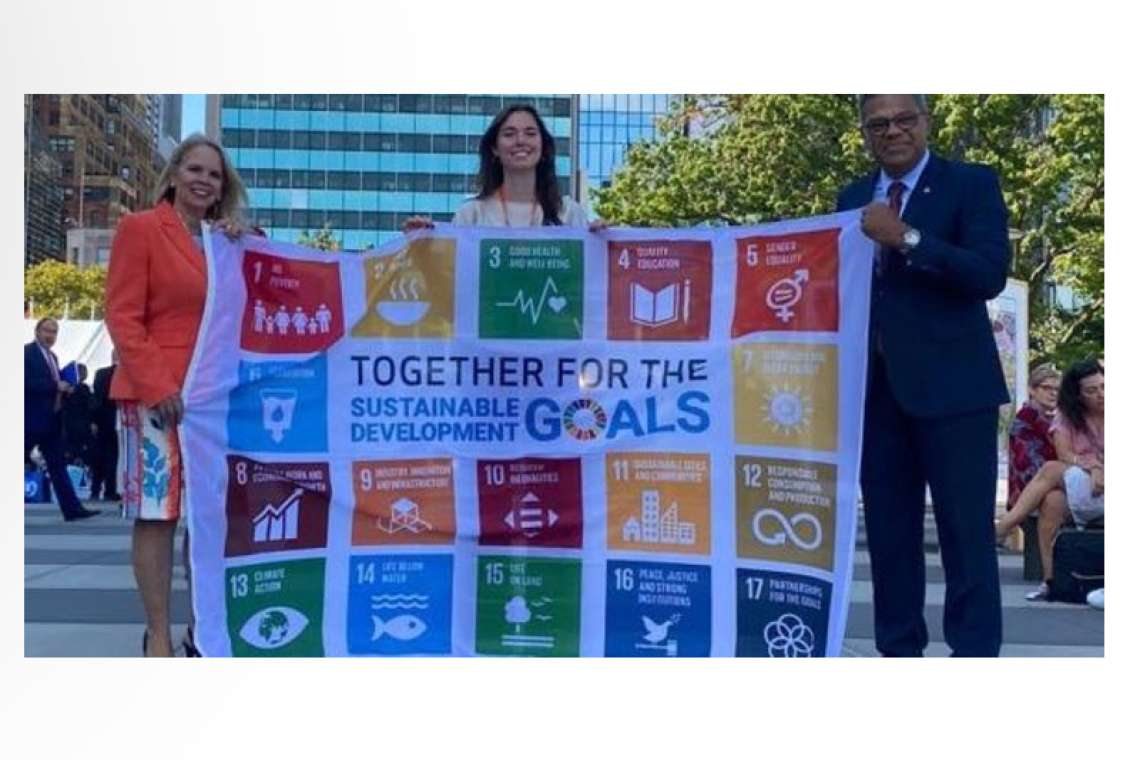St. Maarten Prime Minister Dr. Luc Mercelina and Aruba Prime Minister Evelyn Wever-Croes attended the United Nations Summit of the Future held in New York over the weekend, where the Pact for the Future was adopted to ensure that the interests of future generations are considered in contemporary decision-making.
NEW YORK--During the United Nations Summit of the Future held in New York over the weekend, the draft Pact for the Future was adopted in the presence of Aruba Prime Minister Evelyn Wever-Croes and St. Maarten Prime Minister Dr. Luc Mercelina.
The pact is an action-oriented agreement with chapters on sustainable development, international peace and security, science, technology and innovation, youth and future generations, and the transformation of global governance.
The Kingdom of the Netherlands, alongside Jamaica, played a key role in preparing the Declaration on Future Generations, which aims to ensure that the interests of future generations are considered in today’s decisions. This initiative focuses on securing a liveable future for Caribbean children and grandchildren.
The draft pact, which is currently under negotiation, has the potential to promote a multilateral system that reflects contemporary realities and delivers results for anyone, anywhere. To support its member states, UN Secretary-General António Guterres made proposals in 11 policy briefs, which further elaborate the ideas from the Our Common Agenda report.
Many of these proposals are being considered in the negotiations, which are co-facilitated by Namibia and Germany (for the pact), Zambia and Sweden (for digital cooperation), and Jamaica and the Kingdom of the Netherlands (for future generations). The Pact for the Future and the associated declarations, including the Declaration on Future Generations, aim to promote sustainable development and protect the interests of future generations.
During the summit, several practical solutions developed to better safeguard the interests of young people and future generations.
A key starting point is establishing a global standard for meaningful youth engagement. This means that young people are actively involved in all intergovernmental mechanisms and processes of the United Nations, ensuring that their concerns are considered.
Additionally, it was proposed to implement a system that monitors and tracks youth participation by developing specific guidelines and protocols to protect young people.
To support youth-focused initiatives, a global investment platform for youth projects will be created, potentially funded through additional budgetary resources. At the national level, the establishment of youth consultation bodies is advised, enabling young people to voice their concerns locally as well.
One of the most important initiatives is the approval of a Declaration for Future Generations, which focuses on long-term planning and the use of science and data in policymaking. This declaration deems it crucial that the entire UN system adopts a forward-looking culture where scientific knowledge serves as the foundation for sustainable decisions.







